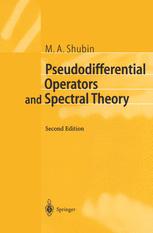

Most ebook files are in PDF format, so you can easily read them using various software such as Foxit Reader or directly on the Google Chrome browser.
Some ebook files are released by publishers in other formats such as .awz, .mobi, .epub, .fb2, etc. You may need to install specific software to read these formats on mobile/PC, such as Calibre.
Please read the tutorial at this link: https://ebookbell.com/faq
We offer FREE conversion to the popular formats you request; however, this may take some time. Therefore, right after payment, please email us, and we will try to provide the service as quickly as possible.
For some exceptional file formats or broken links (if any), please refrain from opening any disputes. Instead, email us first, and we will try to assist within a maximum of 6 hours.
EbookBell Team

4.8
44 reviewsI had mixed feelings when I thought how I should prepare the book for the second edition. It was clear to me that I had to correct all mistakes and misprints that were found in the book during the life of the first edition. This was easy to do because the mistakes were mostly minor and easy to correct, and the misprints were not many. It was more difficult to decide whether I should update the book (or at least its bibliography) somehow. I decided that it did not need much of an updating. The main value of any good mathematical book is that it teaches its reader some language and some skills. It can not exhaust any substantial topic no matter how hard the author tried. Pseudodifferential operators became a language and a tool of analysis of partial differential equations long ago. Therefore it is meaningless to try to exhaust this topic. Here is an easy proof. As of July 3, 2000, MathSciNet (the database of the American Mathematical Society) in a few seconds found 3695 sources, among them 363 books, during its search for "pseudodifferential operator". (The search also led to finding 963 sources for "pseudo-differential operator" but I was unable to check how much the results ofthese two searches intersected). This means that the corresponding words appear either in the title or in the review published in Mathematical Reviews.